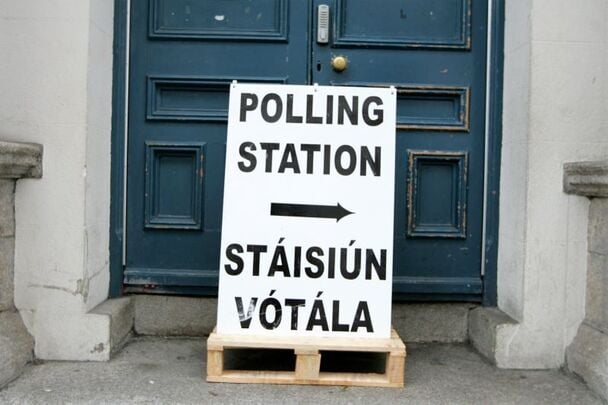Ireland's draft programme for Government, agreed to by the leaders of Fianna Fail, Fine Gael, and a number of Independent TDs on Wednesday, does not provide for a referendum on voting rights for the Irish diaspora.
This is a marked change from the 2020 programme for Government which set out to "hold a referendum on extending the franchise at presidential elections to Irish citizens living outside the State."
Unlike citizens in other countries, Irish citizens who are no longer living in the Republic of Ireland cannot cast votes in Irish elections from abroad.
"Subject to a limited number of exceptions, Irish citizens resident outside the State do not have the right to vote at elections or at referendums held in the State," Ireland's Department of Foreign Affairs says.
This is in relation to Ireland’s Electoral Act of 1992, which dictates that Irish citizens who have left Ireland for no longer than 18 months are still entitled to vote. Thus, Irish citizens living abroad for more than 18 months are not permitted to vote in Irish elections.
There are exceptions for Ireland's Defence Forces personnel and civil servants (and their spouses / civil partners) who are members of missions and who, for the time being, are serving outside the State because of the requirements of their duties.
The issue of voting rights for Irish citizens abroad has been simmering for years. Despite organized efforts from advocates, as well as promises from leading politicians, a referendum has yet to be held.
A 2013 report from the Irish Convention on the Constitution recommended that Irish citizens resident outside of Ireland should have the right to vote in Irish presidential elections.
In 2016, VotingRights.ie was founded to advance the cause of emigrant voting. The global coalition of Irish emigrant groups wrote to then-Taoiseach Enda Kenny calling for a referendum on the matter in 2017.
During a St. Patrick's Day visit to the US in March 2017, Taoiseach Enda Kenny confirmed the Government had decided to move forward with plans to hold a referendum to give the right to vote in presidential elections to Irish citizens abroad, including those in Northern Ireland.
That same month, Ireland's Department of Housing, Planning, Community and Local Government and Department of Foreign Affairs and Trade published an Options Paper which outlined seven options for eligibility criteria and associated implementation measures.
In 2018, it was announced that it was intended for the referendum to be held in late May / early June of 2019, on the same date as the local and European elections.
However, in February 2019, the government decided that the referendum would be postponed due to Brexit.
In September 2019, the Thirty-ninth Amendment of the Constitution (Presidential Elections) Bill 2019 was initiated in Dáil Éireann to facilitate the holding of a referendum, but the Bill lapsed with the dissolution of the 32nd Dáil Éireann.
However, the Bill was later restored to the Dáil Order Paper.
Providing an update on the Bill last October, TD Sean Fleming, Minister of State at the Department of Foreign Affairs, said: "The commitment set out in the Programme for Government to hold a referendum on extending the franchise at presidential elections to Irish citizens living outside of the State remains in place.
"The enabling legislation required in order to hold such a referendum is currently before Dáil Éireann (the Thirty-Ninth Amendment of the Constitution (Presidential Elections) Bill) and its timing remains under consideration.
"Once the legislation has been approved by the Dáil and Seanad, the Minister for Housing, Local Government and Heritage can then make an order setting the day upon which a referendum will take place."
Also in October, a public petition on voting for Irish-born citizens abroad was considered by the Joint Committee on Public Petitions and the Ombudsmen in October.
However, the Bill has now lapsed again upon the dissolution of the 33rd Dáil Éireann.
While the new draft programme for Government does not provide for the voting referendum, it does include the aim to "develop a new Diaspora Strategy to ensure that the new generation and profile of emigrants are aware of and can access support overseas and develop our international diaspora networks using online and data-based initiatives."
The draft programme goes on to say that the next Government will "work to facilitate the easier return to Ireland for emigrants, including reciprocal driving licence arrangements with the USA, Australia, and Canada and the creation of a one-stop-support to assist with obtaining PPS numbers and other administrative issues."
Regarding the Irish diaspora in the US, the draft programme says the Government will "develop a specific strategy to grow the Irish Diaspora in the US" and "advocate with the US Administration and Capitol Hill to advance the case of undocumented Irish citizens in the US."




Comments